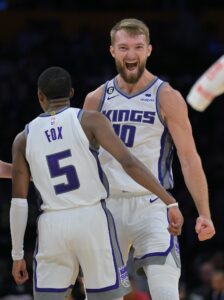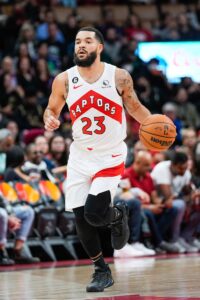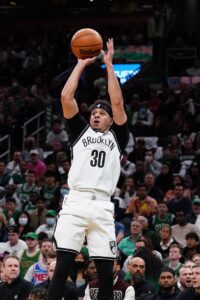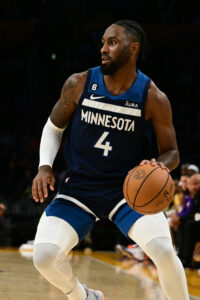A disabled player exception can be granted when an NBA team has a player go down with an injury deemed to be season-ending. The exception gives the club some additional spending flexibility, functioning almost as a cross between a traded player exception and a mid-level exception.
We go into more detail on who qualifies for disabled player exceptions and how exactly they work in our glossary entry on the subject. But essentially, a DPE gives a team the opportunity to add an injury replacement by either signing a player to a one-year contract, trading for a player in the final year of his contract, or placing a waiver claim on a player in the final year of his contract.
Because the rules related to disable player exceptions are somewhat restrictive and the exceptions themselves often aren’t worth a lot, they often simply expire without being used. Still, it’s worth keeping an eye on which disabled player exceptions have been granted, just in case.
We’ll use this space to break down the teams with disabled player exceptions available for the 2022/23 league year, updating it as the season progresses if more teams are granted DPEs and/or to indicate which ones have been used.
Teams have until January 15 to apply for a disabled player exception and until March 10 to actually use them.
Here’s the list so far:
Available disabled player exceptions:
- Boston Celtics:
- $3,239,500 (Danilo Gallinari) (story)
The Celtics used the entire taxpayer mid-level exception to bring in Gallinari as a free agent, but the Italian forward tore his left ACL during a World Cup qualifying game before even getting a chance to suit up for Boston.
The Celtics didn’t announce a recovery timeline when they announced Gallinari’s surgery, and the 34-year-old said he’s holding out hope of returning before the team’s season is over. However, the odds appear slim, so Boston was granted a disabled player exception.
Because the C’s have two trade exceptions worth more than the Gallinari DPE, the team probably won’t use it in a trade, but it could come in handy on the buyout market if Boston is up against a rival that can only offer the veteran’s minimum.
- Detroit Pistons:
- $5,276,400 (Cade Cunningham) (story)
The Pistons’ former No. 1 overall pick saw his sophomore NBA season come to an early end due to a left tibial stress fracture. He underwent surgery to address the injury and was limited to just 12 games in 2022/23.
Even though Cunningham is just a second-year player, he was earning over $10.5MM due to the rising rookie scale, so the Pistons received a decently sized disabled player exception as a result of his season-ending surgery.
Detroit won’t be a player on the buyout market, but it’s possible the team could find a use for the exception in a smaller trade.
- Toronto Raptors:
- $3,000,000 (Otto Porter) (story)
Porter underwent season-ending foot surgery less than a week before the deadline to apply for a disabled player exception, allowing the Raptors to get their request in at the 11th hour.
Word of the Raptors being granted a DPE didn’t break until after the trade deadline had already passed, so it’s safe to assume Toronto’s exception won’t be used in a trade. It could be useful on the buyout market, but the Raptors don’t seem likely to be a major player for free agents in February and March.
Used disabled player exceptions:
- Oklahoma City Thunder:
- $4,945,620 (Chet Holmgren) (story)
- Used to acquire Maurice Harkless ($4,564,980) from Hawks.
- $4,945,620 (Chet Holmgren) (story)
Like Gallinari, Holmgren had yet to make his regular season debut for his new team when he suffered a season-ending injury in a non-NBA game. The No. 2 pick in this year’s draft had at least played for the Thunder in the Las Vegas Summer League before he went down with a a Lisfranc injury in his right foot during a Seattle pro-am game.
Because Holmgren was such a high draft pick, his salary as a rookie is nearly $10MM, allowing the Thunder to receive a disabled player exception big enough to absorb Harkless’ $4.5MM+ expiring contract in a deal with Atlanta.
The Thunder sent out Vit Krejci in that trade, but he only had a $781,759 partial guarantee, and even if his $1,563,518 had been fully guaranteed as part of the deal, it wouldn’t have been enough to match Harkless’ incoming salary. As such, Oklahoma City had to use an exception to complete the deal.
Harkless wasn’t part of OKC’s plans for the 2022/23 season (he was subsequently flipped to the Rockets in a salary dump), but taking him on allowed the Thunder to acquire a future second-round pick from the Hawks and amend the protections on another second-rounder owed to them by Atlanta.
 The Kings addressed their outside shooting in all sorts of different ways, drafting
The Kings addressed their outside shooting in all sorts of different ways, drafting  Certain extension-eligible players, including perhaps
Certain extension-eligible players, including perhaps 
